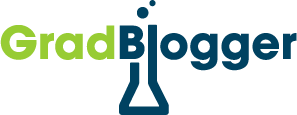Podcast: Play in new window | Download
Subscribe: Apple Podcasts | Spotify | RSS
Disclosure: Some of the links in the podcast show notes and transcripts are affiliate links (indicated with [Affiliate] in front). If you choose to make a purchase through these links GradBlogger will earn a commission from that purchase at no extra cost to you.
When Dr. Isabeau Iqbal started her coaching business, she prepared by obtaining some widely-recognized coaching certifications. What she found a lot more challenging as an academic was learning the business aspects of being a professional coach.
With her professional field being educational development, Isabeau did a lot of coaching, although she didn’t use that term.
When she explored the idea of coaching, Isabeau realized that it overlapped with her role as an education developer.
“I had been coached a number of times, had a really positive experience because I love to learn, and because I could also see the application within my role as an educational developer,” she recalled. “I still work part-time as an educational developer. And I was really interested in starting my own practice as a coach. I decided to start more formally in my own training as a coach.”
She used the CliftonStrengths Assessment to determine what training would be necessary but, as she put it, “I didn’t want to fall into my own trap of what I call the good student, meaning doing extensive training and delaying on the business side.”
Start today.
Knowing that she didn’t have much of a business background aside from running an enterprise with her partner when she was in her 20s, Isabeau sought a certification that wouldn’t give her an excuse to delay the business side of things.
“I did the Gallup Training, which is only a four and a half-day coach training with some minor requirements around coaching people in order to become certified,” Isabeau explained. “That, I felt, was a really focused tool, a way that I would jump into the business aspect quickly, plus have some background in a specific tool.”
After becoming a Gallup-certified coach, Isabeau launched her business. She soon learned that evaluating and adjusting on an ongoing basis was important. Her motivation and energy were high but her willingness to engage in activities that don’t generate revenue diminished over time.
“So I’ve become more selective and discerning about where I put my energy and that’s partly because I’ve gone through some phases of real intense fatigue and my personal values are around family and well-being. And so evaluating and adjusting on an ongoing basis and seeing how that matches my values was one piece that I learned.”
She learned to identify what brought her energy and to not shy away from being uncomfortable. There were so many messages out there about how to succeed in business that she had to ask herself, “Okay, what’s really important to me here? What brings me energy?” For her, the answer was: helping and connecting with others.
Although she preferred to do introverted things like post on social media and write in her blog, Isabeau realized that she had to become willing to be uncomfortable and be out there more. She also learned that she couldn’t assume that potential clients would know how she could help them.
“I’m sure anyone who’s ever looked for a coach will probably have noticed that there’s lots of coach jargon. I don’t think people necessarily know what coaches do if you haven’t worked with a coach before.” Isabeau said, “You need to help people understand what you do, regardless of what business you’re in. So those are three big lessons that I learned during the first year of business.”
Keep learning.
By the end of that first year, Isabeau knew that she wanted to keep at it, so she invested in a longer certification with the International Coaching Federation. It was a one-year undertaking that involved coursework, evaluation by a master coach, and 100 hours of active coaching, some of which are paid.
“It was a lot more rigorous than the previous certification that I had done and of course, I knew that going in and as someone who loves to learn, that was also very appealing to me.”
Today, Isabeau has an active coaching practise that includes regular referrals from existing clients and a Vancouver-based leadership development organization where she does volunteer work. When asked if she had any advice for fellow academics interested in starting a coaching career, she had the following to say.
“Yeah. I have a few thoughts on that. (First), get really clear on what your own needs are if you’re thinking about going down this path,” Isabeau said. “I mentioned earlier that my need was for ongoing learning, for career growth, for fulfilling that desire around ambition and yeah, moving my career forward in ways that really felt exciting. Income is, of course, a need to consider. Variety, autonomy. So really getting clear on what your needs are. Another one would be to find people whose work you admire and follow them. Use that as inspiration.”
Find a supportive community.
“Starting a business and pursuing a business is not always a comfortable thing.” Isabeau explained, “Lots of times, I just don’t know necessarily what path to take, what I’m doing. I’m constantly in a novice position and again, with my Higher Ed background, being a novice isn’t necessarily my favourite place to be. So when I have a supportive community, it’s so helpful in many, many ways. That would be another piece of advice that I would end with.”
If you’re an academic who’s been thinking about coaching others in your area of specialty, you can contact Isabeau at isabeauiqbal.com or on LinkedIn and Twitter.
Do you work with a coach? Would you like to coach others? Share your experience in the comments below.




